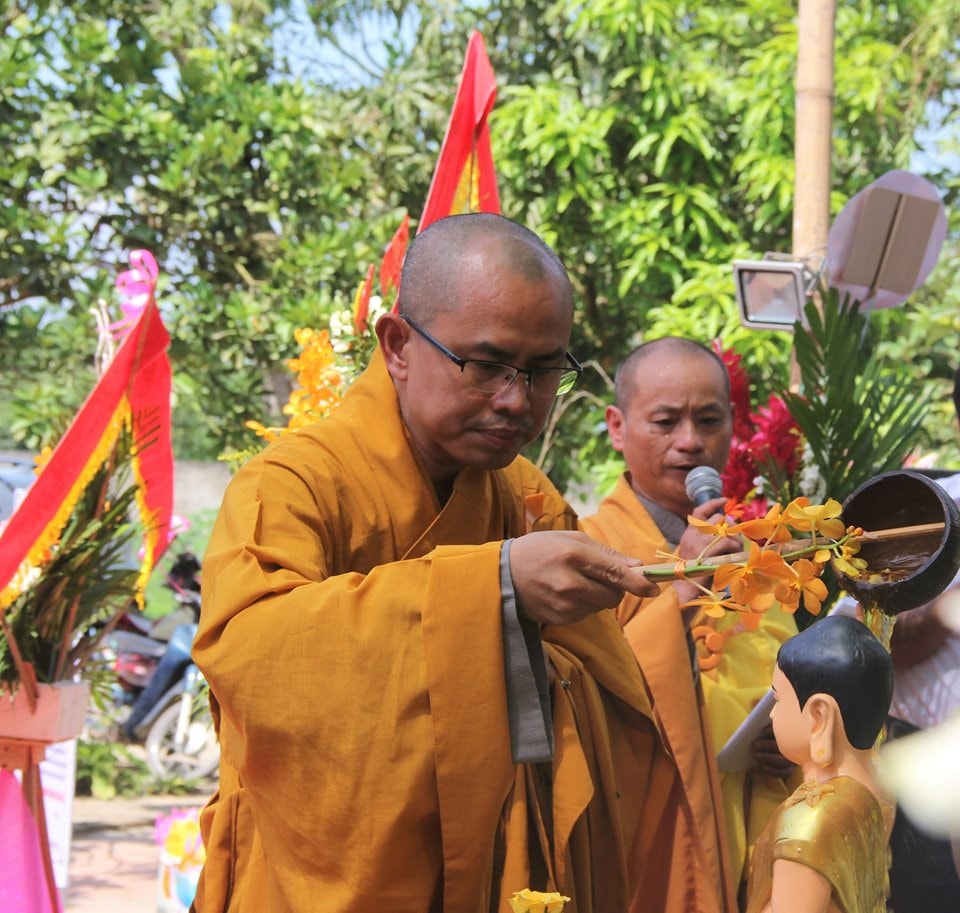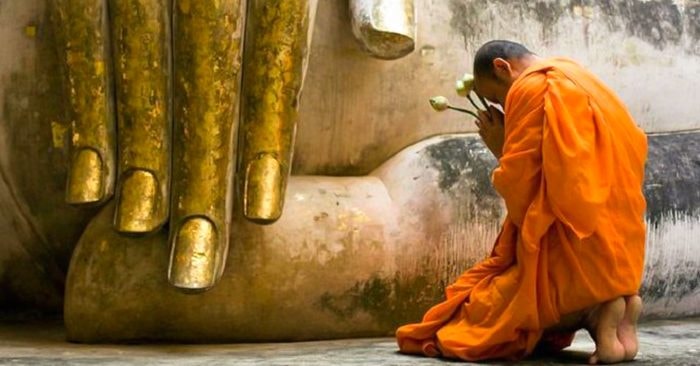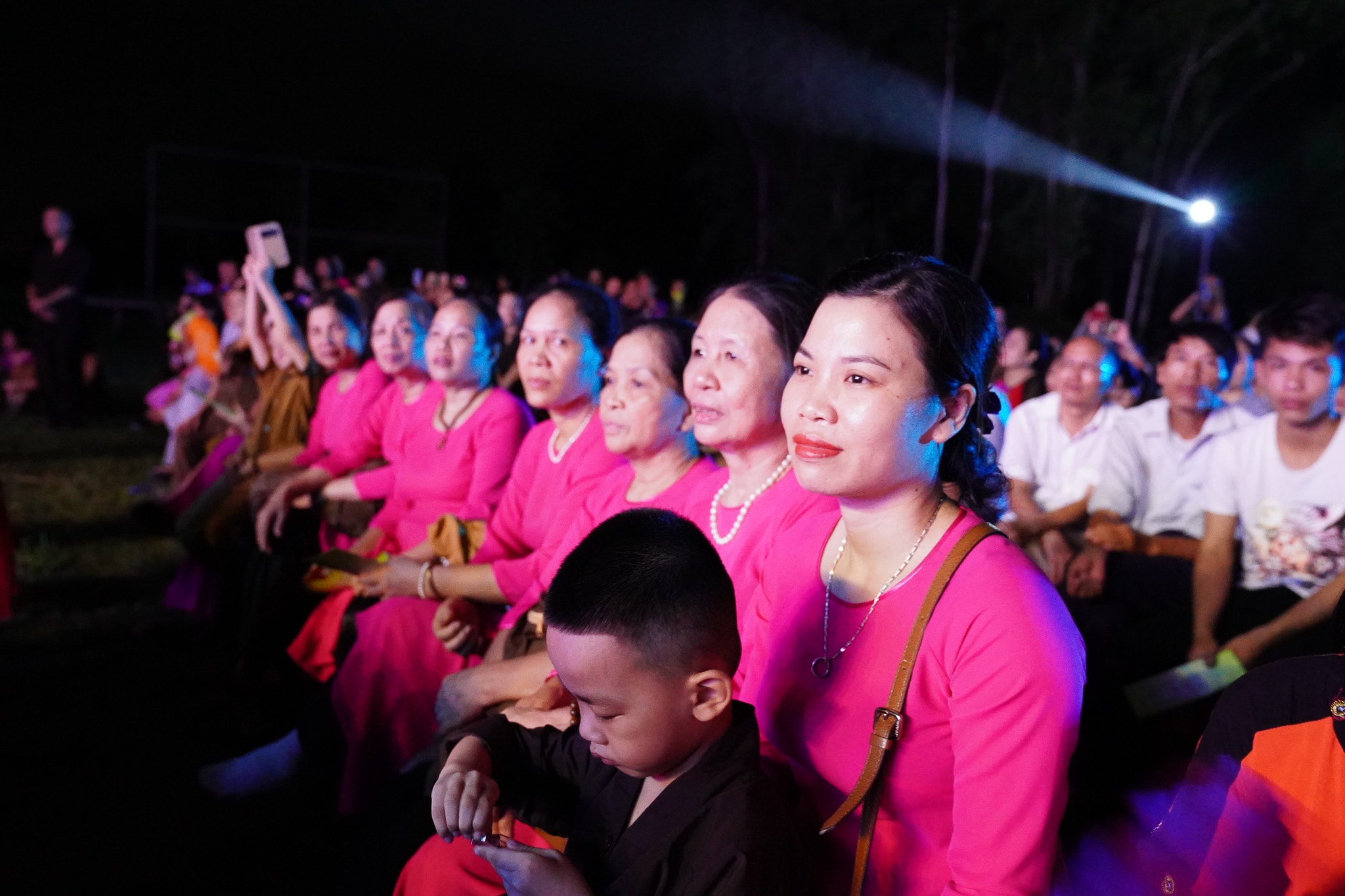Repentance to turn people toward goodness
(Baonghean) - Most of the teachings of religions in the world talk about repentance. Repentance is considered an important ritual in the practice of believers. In addition to the two major religions, Buddhism and Catholicism, the ritual of repentance and admitting mistakes is also popular in some other sects that Buddhism calls worldly dharma (paganism).
According to Buddhist scriptures, repentance is a way to express regret, so that people can return to actions with Right Views. "Repentance" in Sanskrit is called Sam ma; in Chinese it is called "Repentance result". The Repentance Sutra says "Those who repent must repent of their previous sins, those who repent must repent of their later mistakes", meaning that people in life need to know how to repent, to regret their mistakes when they do wrong, to examine themselves, to change their minds, to change from within, leading to the decision to break away from sin, to return to what is right and good.
The Great Vietnamese Dictionary explains: Repentance is to repent, to regret one’s sins. Therefore, using the word “Repentance” or the word “Repentance” is not enough. “Repentance” has become a phrase whose meaning in real life or practice always has a continuous relationship. Only by repenting for doing wrong and living badly can one have regret, from which one has the consciousness to correct oneself to be a good person, to do good deeds.
 |
| Venerable Thich Dinh Tue, in charge of Buddhism in Hung Nguyen district, opened the Buddha bathing ceremony. Photo courtesy of Hong An |
However, in reality, when it comes to repentance, many people think, what sins have they committed that they need to repent? That is the subjective and somewhat confident way of thinking and speaking of the majority of truly good people, or perhaps of those who have done many bad things but deliberately do not know or are hypocritical, creating a good cover for themselves, thinking that no one knows they are bad.
Buddha Sakyamuni taught: "Every human being living in this life makes more or less mistakes. Because of ignorance (lack of clarity), if not trained and practiced, mistakes can cause suffering to others."
Because of “ignorance”, there are people who are basically good, but at some point, at some point, in some situation, they are not skillful in their actions and words, causing suffering to their friends, relatives, and even hurting their loved ones. Buddhism calls this creating unwholesome karma (by body, speech, and mind). That is why when we reflect back, wanting to be pure and at ease, wanting to get rid of mistakes, we must of course find a way to eliminate all sins. In Buddhism, the method to eliminate sins is called Repentance.
 |
| Repentance is the way for people to become good. Photo: Phatgiao.org |
The word repentance is a proper noun in Buddhist teachings. Repentance is a form applied to believers in the process of practice. However, in the process of development, entering the world is one of the ways for Buddhism to enter life, take root in life. Therefore, repentance is also a popular method applied in society, considered as one of the ways to shape human moral behaviors.
In folklore, depending on the time, customs and culture, there are many ways to atone for sins. For example, when making mistakes with ancestors or the country, people often use betel, wine, pigs, chickens, or money to apologize. Sometimes people use the form of "repaying merits and atone for sins" when making mistakes with the court or the army, for example. In today's society, people use criticism and self-criticism, self-criticism, apologies, and promises to correct mistakes and shortcomings to be good people, to build a good and civilized society. Ultimately, it is also a way to apply and inherit the good of Repentance that our ancestors inherited and developed from ancient times, from the profound meaning of Buddhist teachings.
 |
| Since the Buddhist filial piety festival, Vu Lan Festival has become a familiar event to many people, carrying the profound meaning of gratitude and filial piety of Eastern people. Photo: Ho Chien |
According to Buddhist teachings, sin is psychological. Therefore, it is impossible to use material things such as water, blood, offerings or the body to cleanse sin. Although it is necessary to express human repentance. “Sin is created by our mind, no one can reward or punish. Sin is created by the mind, so it must also be eliminated by the mind. So if we want to be free from sin, we must follow the true repentance methods of Buddhism to practice to eliminate bad karma” - said Buddha.
 |
| The library of the Vietnam Buddhist Academy is equipped with many books on Buddhist scriptures and doctrines. The monks and nuns studying there have to study many documents written in Sanskrit, ancient Chinese, etc. Photo: Documentary |
For Buddhists, repentance means bringing Buddha into their hearts, bringing Buddha's virtues into their hearts. Praying to Buddha, thinking about Buddha's words and deeds means having Buddha in their hearts. As for ordinary people, always think about what is good and what is right. When you see yourself doing wrong, you must know how to self-examine, repent, return to what is right and good, and do many good things for yourself and for life.
Get up after every fall. Repentance is the way for people to become good. Therefore, each person must train themselves to eliminate worldly karma. Losing this mind, people will lose everything.

